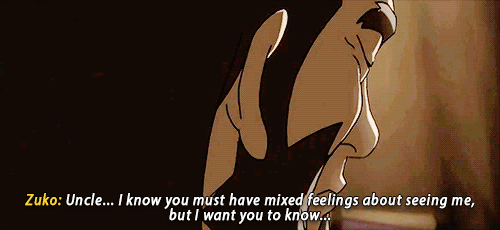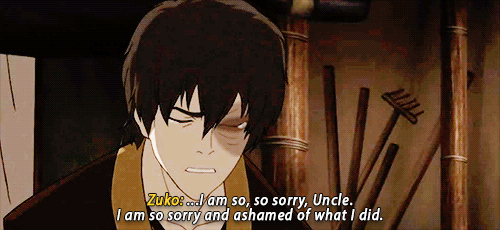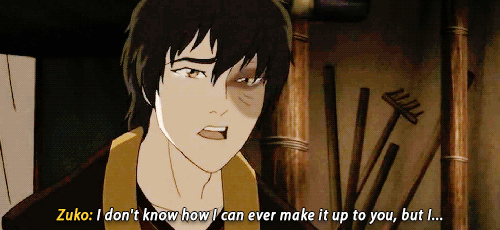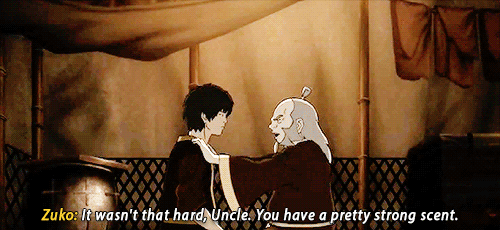People Talk A Lot About How Reading Is Necessary For Writing, But When You Really Want To Improve Your
People talk a lot about how reading is necessary for writing, but when you really want to improve your writing, it’s important to go beyond just simple reading. Here are some things to do when reading:
Note how they begin and end the story. There are a ton of rather contradictory pieces of advice about starting stories, so see how they do it in the stories you enjoy. Don’t only look at the most popular stories, but look at your more obscure favorites.
See what strikes you. Is it fast or complicated scenes with a lot of emotions? Is it stark lines? Pithy dialogue? What do you remember the next day?
Pay attention to different styles. It’s not just whether they use past or present tense, first or third person. It’s whether the writing is more neutral or deeper inside character’s heads. Do they use italics? Parentheses? Other interesting stylistic choices? Take the ones you like and try them out in your own writing. See what works and what doesn’t.
Keep track of how they deal with other characters. Do we see a lot of secondary character each for very brief periods of time or are there a couple that show up a lot? How much information do we get about secondary characters? Do they have their own plots or do their plots revolve entirely around the main characters?
Count how many plots there are. Is there just one main plot or are there multiple subplots? Are the storylines mostly plot-based or character-based?
Pay attention to what you don’t like. If you don’t like what’s going on in a book or even just a scene, note what it is. Does the dialogue feel awkward? Are the characters inconsistent? Does the plot feel too convenient or cobbled together? Does the wording just feel off? See if you can spot those issues in your own writing, especially when reading a completed draft or beginning a later draft.
More Posts from Nasenaya and Others
Writing Traumatic Injuries References
So, pretty frequently writers screw up when they write about injuries. People are clonked over the head, pass out for hours, and wake up with just a headache… Eragon breaks his wrist and it’s just fine within days… Wounds heal with nary a scar, ever…
I’m aiming to fix that.
Here are over 100 links covering just about every facet of traumatic injuries (physical, psychological, long-term), focusing mainly on burns, concussions, fractures, and lacerations. Now you can beat up your characters properly!
General resources
WebMD
Mayo Clinic first aid
Mayo Clinic diseases
First Aid
PubMed: The source for biomedical literature
Diagrams: Veins (towards heart), arteries (away from heart) bones, nervous system, brain
Burns
General overview: Includes degrees
Burn severity: Including how to estimate body area affected
Burn treatment: 1st, 2nd, and 3rd degrees
Smoke inhalation
Smoke inhalation treatment
Chemical burns
Hot tar burns
Sunburns
Incisions and Lacerations
Essentials of skin laceration repair (including stitching techniques)
When to stitch (Journal article–Doctors apparently usually go by experience on this)
More about when to stitch (Simple guide for moms)
Basic wound treatment
Incision vs. laceration: Most of the time (including in medical literature) they’re used synonymously, but eh.
Types of lacerations: Page has links to some particularly graphic images–beware!
How to stop bleeding: 1, 2, 3
Puncture wounds: Including a bit about what sort of wounds are most likely to become infected
More about puncture wounds
Wound assessment: A huge amount of information, including what the color of the flesh indicates, different kinds of things that ooze from a wound, and so much more.
Home treatment of gunshot wound, also basics More about gunshot wounds, including medical procedures
Tourniquet use: Controversy around it, latest research
Location pain chart: Originally intended for tattoo pain, but pretty accurate for cuts
General note: Deeper=more serious. Elevate wounded limb so that gravity draws blood towards heart. Scalp wounds also bleed a lot but tend to be superficial. If it’s dirty, risk infection. If it hits the digestive system and you don’t die immediately, infection’ll probably kill you. Don’t forget the possibility of tetanus! If a wound is positioned such that movement would cause the wound to gape open (i.e. horizontally across the knee) it’s harder to keep it closed and may take longer for it to heal.
Broken bones
Types of fractures
Setting a broken bone when no doctor is available
Healing time of common fractures
Broken wrists
Broken ankles/feet
Fractured vertebrae: Neck (1, 2), back
Types of casts
Splints
Fracture complications
Broken noses
Broken digits: Fingers and toes
General notes: If it’s a compound fracture (bone poking through) good luck fixing it on your own. If the bone is in multiple pieces, surgery is necessary to fix it–probably can’t reduce (“set”) it from the outside. Older people heal more slowly. It’s possible for bones to “heal” crooked and cause long-term problems and joint pain. Consider damage to nearby nerves, muscle, and blood vessels.
Concussions
General overview
Types of concussions 1, 2
Concussion complications
Mild Brain Injuries: The next step up from most severe type of concussion, Grade 3
Post-concussion syndrome
Second impact syndrome: When a second blow delivered before recovering from the initial concussion has catastrophic effects. Apparently rare.
Recovering from a concussion
Symptoms: Scroll about halfway down the page for the most severe symptoms
Whiplash
General notes: If you pass out, even for a few seconds, it’s serious. If you have multiple concussions over a lifetime, they will be progressively more serious. Symptoms can linger for a long time.
Character reaction:
Shock (general)
Physical shock: 1, 2
Fight-or-flight response: 1, 2
Long-term emotional trauma: 1 (Includes symptoms), 2
First aid for emotional trauma
Treatment (drugs)
WebMD painkiller guide
Treatment (herbs)
1, 2, 3, 4
Miscellany
Snake bites: No, you don’t suck the venom out or apply tourniquettes
Frostbite
Frostbite treatment
Severe frostbite treatment
When frostbite sets in: A handy chart for how long your characters have outside at various temperatures and wind speeds before they get frostbitten
First aid myths: 1, 2, 3, 4, 5 Includes the ones about buttering burns and putting snow on frostbite.
Poisons: Why inducing vomiting is a bad idea
Poisonous plants
Dislocations: Symptoms 1, 2; treatment. General notes: Repeated dislocations of same joint may lead to permanent tissue damage and may cause or be symptomatic of weakened ligaments. Docs recommend against trying to reduce (put back) dislocated joint on your own, though information about how to do it is easily found online.
Muscular strains
Joint sprain
Resuscitation after near-drowning: 1, 2
Current CPR practices: We don’t do mouth-to-mouth anymore.
The DSM IV, for all your mental illness needs.
Electrical shock
Human response to electrical shock: Includes handy-dandy voltage chart
Length of contact needed at different voltages to cause injury
Evaluation protocol for electric shock injury
Neurological complications
Electrical and lightning injury
Cardiac complications
Delayed effects and a good general summary
Acquired savant syndrome: Brain injuries (including a lightning strike) triggering development of amazing artistic and other abilities
Please don’t repost! You can find the original document (also created by me) here.
When a fanfic hasn’t been updated since 1829 but you read it anyways



Lance appreciation sketches! He is a good guy and a selfless cinnamon roll!! QHQ)
How to Survive College Without Losing Your Goddamn Mind
Most self-care advice just isn’t useful for college students. You have very little time, very little disposable income, and you don’t really have the ability to just “take on less stress”. Playing hooky to have a spa day isn’t really an option when you’re a broke scholarship student trying to get into medical school someday.
So if you’re actually trying to get through school with a solid GPA and your mental health still intact:
Go to your professors’ and TAs’ office hours. Your professors’ contracts require them to sit in their offices for a couple of hours per week, and most of them are spending that time alone and bored out of their skulls. If you’re struggling with the material, uncertain about how your paper is turning out, or wondering if you’re on the right career path, don’t sit in your dorm room until you’re frustrated to tears - go talk to your professors. Most of them will be happy to help you out just so they have something to do, and they’re more inclined to cut you some slack because they can see that you truly give a shit. I can’t count how many Bs and B+s I turned into As and A+s just by going to professors’ office hours. Go.
Ask for extensions on coursework if you need them. I can’t count how many times I saw friends sobbing over their laptops while sitting in emergency rooms or after receiving news of a family member’s death, because they had assignment deadlines to meet and they didn’t realize extensions were possible. Life happens. Professors aren’t heartless. Universities are more under the microscope than ever when it comes to student mental health. If you’ve had a personal emergency, mental health crisis, car accident, etc, email your professors the first chance you get, and ask for an extension on coursework. The worst thing they can possibly say is no, and you’d be surprised how many say yes. As a student, I was granted extensions on coursework five times: after a car accident, after my father was diagnosed with cancer, after my godfather’s death, after spending the night in ER with my very sick roommate, and after having a serious allergic reaction. I’ve had friends get extensions after depressive episodes and bad breakups. It’s possible. Ask.
Don’t intentionally schedule yourself a shitty semester. A lot of students have a weird habit of scheduling all their most difficult or boring required classes in the same semester to “get them out of the way”, usually in their first or second year of school. Don’t do this if you can avoid it. It might seem tempting to have a shitty 4 months and get it over with, but you underestimate the impact that four months of constant stress over classes you don’t care about can have on your grades, your passion for school and your self-esteem. Don’t do it. Space your most dreaded classes out, and try to take at least one class per semester that you look forward to.
Lay down ground rules with your roommate ASAP. What time do you want the lights off at night? Who showers when? How many people can you invite over at once, and how much notice do you have to give? How clean do you both want the place to be? Even if your roommate seems like the most chill person on earth - hell, even if your roommate is your lifelong best friend - you need to discuss this stuff sooner rather than later, before classes really get going. The last thing you need is a stressful dispute with someone you literally cannot escape from when you’re up to your ears in midterms.
Be upfront and honest with romantic partners and hookups. Again, the last thing you need to be doing is having a tearful argument with your sort-of-SO the night before your organic chemistry final. We’re all adults in college, and it’s better for everyone to act like it. Be honest with potential SOs about what you want, and what you have time for. If you’re just looking for a no-strings-attached hookup every now and then, tell them that. If you are interested in a serious relationship but you won’t be able to answer their texts and messages very often this semester, say that. I had a particularly shitty final exam season one semester because my (non-student) boyfriend couldn’t understand why I suddenly had no time for him. Misunderstandings aren’t always avoidable, but it’s important to take steps to minimize miscommunications and hurt feelings.
Check in with your advisor at least once per semester. Program requirements aren’t always clear, new classes get introduced every semester, and most students will change majors at least once. Make sure you are constantly checking with your advisor to make sure that you are on track to graduate, and if you need confirmation that a certain course will count towards your requirements, get it in writing. Staying in touch with your advisor during your first couple of semesters will save you a lot of stress and headaches in your last few semesters.
Don’t use caffeine to pull all-nighters. I can preach to you about “don’t pull all-nighters” all I want, but realistically, you’re probably going to pull one at least once in your college career. I’m in grad school and I still pull them. Be smart about it. Chugging Red Bull isn’t going to keep you alert all night, it’s just going to make you anxious for a few hours before you crash hard. Avoid the caffeine. Drink water, eat healthy snacks, and sit in a proper chair with good posture. If you start to get tired, stand up and do some exercise - do some jumping jacks, go for a quick walk, dance to some music - and splash cold water on your face. You’ll be more effective for longer periods of time if you take frequent breaks and put the caffeine down.
Don’t compare yourself to other people. I know that it’s hard not to see everyone around you as your competition, and it can be tough to not feel a little pang of jealousy or panic when someone else achieves something you want. But this isn’t a healthy mindset. Seeing yourself as being in direct competition with everyone around you is a lonely and stressful way to live. There is lots of room for success. Tens of thousands of people get into medical school and law school and business school every year. Someone else succeeding does not mean that you fail. Celebrate the fact that we have so many brilliant and wonderful people to take on the world’s toughest problems together. Let yourself be happy for others. Invest in dry shampoo and baby wipes. You’re not always going to have time to shower, and nothing pulls your mood down faster than feeling dirty. Find easy ways to freshen up now and then to boost your mood. Use some dry shampoo, take a baby wipe to the essential bits, change into some clean clothes, brush your teeth. Looking like less of a wreck will make you feel like less of a wreck.
Have a life outside of school. Have something. A club. A volunteer position. A band. A writer’s group. Have something that you look forward to, that lets you socialize with other people you have things in common with. Having nothing but school and homework in your life is a quick recipe for going full-on “Jack from The Shining”. My best memories from college are all from the clubs and organizations that I joined, and all of my most meaningful, long-term friendships are with the people I met by being involved on campus. It matters a lot, and it can mean the difference between enduring college and enjoying it. Go easy on yourselves, drink water, eat vegetables, and have a safe and healthy semester, everyone.
HEY ARTISTS!
Do you design a lot of characters living in not-modern eras and you’re tired of combing through google for the perfect outfit references? Well I got good news for you kiddo, this website has you covered! Originally @modmad made a post about it, but her link stopped working and I managed to fix it, so here’s a new post. Basically, this is a costume rental website for plays and stage shows and what not, they have outfits for several different decades from medieval to the 1980s. LOOK AT THIS SELECTION:

OPEN ANY CATEGORY AND OH LORDY–

There’s a lot of really specific stuff in here, I design a lot of 1930s characters for my ask blog and with more chapters on the way for the game it belongs to I’m gonna be designing more, and this website is going to be an invaluable reference. I hope this can be useful to my other fellow artists as well! :)










one of the best heartwarming scenes between Zuko and Iroh. The fact that Zuko is truly repentant and Iroh is unconditionally forgiving despite everything he’s endured. And of course, they can make you cry one moment and laugh in the next.





“You started young, right? What is your advice for young people?”
dealing with the worst case scenario
your condom breaks
you feel a lump on your breast
your friends are ignoring you
you’re stranded on an island
you got rejected by a crush
you get into a car accident
you got stung by a bee/wasp
you got fired from your job
you’re in an earthquake
your tattoo gets infected
your house is on fire
you’re lost in the woods
you get arrested abroad
you get robbed
your partner cheated on you
you’re on a ship that’s sinking
you fall into ice
you’re stuck in an elevator
you hit a deer with your car
you have food poisoning
your pet passed away
you fall off of a horse
you or your friend has alcohol poisoning
you have toxic shock syndrome
your house has a gas leak

Dororo fandom it’s just:

this scene broke my heart
-
 alt--er--love liked this · 1 week ago
alt--er--love liked this · 1 week ago -
 sirzenithknight9 reblogged this · 2 weeks ago
sirzenithknight9 reblogged this · 2 weeks ago -
 meloonihuora liked this · 1 month ago
meloonihuora liked this · 1 month ago -
 coolname2 reblogged this · 1 month ago
coolname2 reblogged this · 1 month ago -
 sunkain liked this · 1 month ago
sunkain liked this · 1 month ago -
 lunatickitty25 liked this · 1 month ago
lunatickitty25 liked this · 1 month ago -
 varietyoflol liked this · 1 month ago
varietyoflol liked this · 1 month ago -
 newdawnhorizon reblogged this · 1 month ago
newdawnhorizon reblogged this · 1 month ago -
 felclip liked this · 1 month ago
felclip liked this · 1 month ago -
 writeshine reblogged this · 2 months ago
writeshine reblogged this · 2 months ago -
 keulixeutin reblogged this · 2 months ago
keulixeutin reblogged this · 2 months ago -
 pyrojirah liked this · 2 months ago
pyrojirah liked this · 2 months ago -
 linde121 liked this · 3 months ago
linde121 liked this · 3 months ago -
 sanssavoirpourquoi liked this · 3 months ago
sanssavoirpourquoi liked this · 3 months ago -
 fablecatory liked this · 3 months ago
fablecatory liked this · 3 months ago -
 dreamvomitao3 reblogged this · 3 months ago
dreamvomitao3 reblogged this · 3 months ago -
 heckcareoxytwit liked this · 3 months ago
heckcareoxytwit liked this · 3 months ago -
 xavilly liked this · 3 months ago
xavilly liked this · 3 months ago -
 chiamidolover reblogged this · 3 months ago
chiamidolover reblogged this · 3 months ago -
 makaroni-and-chez liked this · 4 months ago
makaroni-and-chez liked this · 4 months ago -
 heckcareoxytwit reblogged this · 4 months ago
heckcareoxytwit reblogged this · 4 months ago -
 zimshan reblogged this · 4 months ago
zimshan reblogged this · 4 months ago -
 wynters-writings liked this · 4 months ago
wynters-writings liked this · 4 months ago -
 det-cupcake liked this · 4 months ago
det-cupcake liked this · 4 months ago -
 kasmie liked this · 4 months ago
kasmie liked this · 4 months ago -
 the-hero-in-you liked this · 5 months ago
the-hero-in-you liked this · 5 months ago -
 roselyn-writing liked this · 5 months ago
roselyn-writing liked this · 5 months ago -
 survivintothrivin liked this · 5 months ago
survivintothrivin liked this · 5 months ago -
 lexskxtches reblogged this · 5 months ago
lexskxtches reblogged this · 5 months ago -
 fiction-addictionn reblogged this · 5 months ago
fiction-addictionn reblogged this · 5 months ago -
 spr1n6tim30nionzzz liked this · 6 months ago
spr1n6tim30nionzzz liked this · 6 months ago -
 goddessofcoloredpencils liked this · 6 months ago
goddessofcoloredpencils liked this · 6 months ago -
 dr3am-caf3 liked this · 7 months ago
dr3am-caf3 liked this · 7 months ago -
 elementscrap liked this · 7 months ago
elementscrap liked this · 7 months ago -
 leahnardo-da-veggie liked this · 7 months ago
leahnardo-da-veggie liked this · 7 months ago -
 wyked-ao3 liked this · 7 months ago
wyked-ao3 liked this · 7 months ago -
 ocalaghan liked this · 7 months ago
ocalaghan liked this · 7 months ago -
 angelicandainty liked this · 8 months ago
angelicandainty liked this · 8 months ago -
 restlessdinosaur liked this · 8 months ago
restlessdinosaur liked this · 8 months ago -
 simplyhanji reblogged this · 8 months ago
simplyhanji reblogged this · 8 months ago -
 izuwumidoriya liked this · 8 months ago
izuwumidoriya liked this · 8 months ago -
 everlovingdeer reblogged this · 8 months ago
everlovingdeer reblogged this · 8 months ago -
 blooranje liked this · 8 months ago
blooranje liked this · 8 months ago -
 asayyun14 liked this · 8 months ago
asayyun14 liked this · 8 months ago -
 ratsfisher liked this · 9 months ago
ratsfisher liked this · 9 months ago
